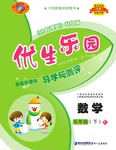题目内容
It’s illegal for a public official to ask people for gifts or money ________ favors to them.
A. in preference to B. in place of
C. in agreement with D. in exchange for
D
【解析】
试题分析:考查介词短语辨析。句意:公务员要求人们拿礼品或金钱来换取支持是违法的行为。A优先于;B代替;C同意,与......一致;D交换......。根据句意可知,这里是“交换”的意思,故选D。
考点:考查介词短语辨析

练习册系列答案
 优生乐园系列答案
优生乐园系列答案
相关题目
